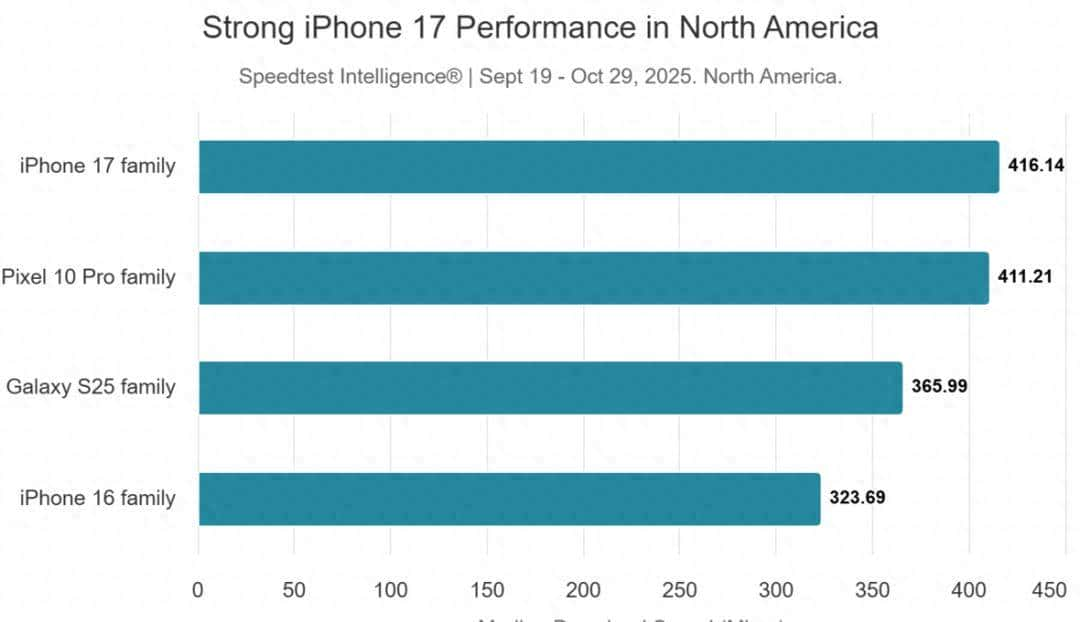00:00
看了无数美剧,刷遍无数电影,别人舔屏韩国欧巴,独我混迹欧美圈。
为啥一开口还是 “It's very beautiful. ”“That's very nice. ”这样平淡无奇的句子?
由于词汇不高级!越高级的词汇,含义越丰富。
Lucy 小姐姐慷慨解囊,满满干货等你来听。
– Hello everyone, and welcome back to English With Lucy. Today, I've got an important lesson for you about the three words you should never, ever say or use in English.
大家好,欢迎回到“与Lucy一起学英语”。今天,我将为大家讲一堂很重大的课 ,是关于3个你在英语中不应再说也不该再用的单词。
This lesson is going to help you improve all aspects of your English, but in particular, your vocabulary and your writing.
这节课将能让你的英语学习更加全面,特别是在,词汇量和写作方面。
But it will also help with speaking, listening, and storytelling as well. It's also going to be especially useful if you want to sound more professional.
还能协助你提高交谈、听力和讲故事的能力。如果想让你的英语更加专业,这节课对此也特别有用。
But more about that later. Before we get started, I'd like to mention one other thing that can drastically improve your English language skills. It's the Lingoda Language Marathon.I'm going to talk about this fully at the end of the video, but you can go to the time shown on the screen now if you want to know about it right this second.
好了先不多说。在我们开始本课前,我想先提另外一件事,它可以大大的提高你的英语语言技巧。就是“Lingoda语言马拉松”。我会与大家全面探讨它,在本期视频结束后,你目前也可以快进到屏幕上显示的时间点,如果你想立刻了解它。
Basically, you an do 90 days of English lessons with qualified native teachers and get your full course fee refunded. That's up to 807 euros. But first, let's get on with the lesson.
你基本上能够听90天的英语课,由合格的母语教师授课,并退还你所有的课程费用。最多有807欧元。不过让我们先回到本课程中。
The first word that you should never, ever say or write in English is, dare I even say it? It's very.
第一个你不该再,说或写的单词,我可以大胆的说出来吗?就是very。
Now, I've spoken about this horrible little word before. But I think it's essential that you understand why you should never use it. Especially when writing, and God forbid, in essays and exams.
我目前已经将这个可怕的单词说出口了。但是我认为有必要让你清楚为什么你不应该再用它。特别是在你写文章和考试时,严禁使用。
Very is a very weak word. See what I did there. It doesn't communicate enough information, and in my opinion it's oneof the most useless words in the English language.
very是一个很没用的单词。看我在那做过什么。这个单词无法表达出足够的信息,我认为它在英语中是一个最没用的单词。
All it does is magnify another word. So how can you avoid using it, and what should you say instead, if anything.
它所能做的就是放大另一个单词的含义。因此如果你想表达这个意思,你该如何避免使用它,如果用其它词取代它呢?
I'm going to give you some options, and I'm going to give you loads of vocabulary that you can use that will make you sound like a total pro, short for professional.
我将为你提供几个备选,同时为你扩充词汇量,你可以利用它让你的英语表达十分简明,从而更加专业。
First I'm going to ask you a question. Which of these sounds better? The audience were very scared by the very loud noise.Or the audience were very scared by the deafening noise. I mean, I think the second one sounds better.
我先提一个问题。哪一句话看起来更好?很大的噪声把观众吓坏了。还是震耳欲聋的声音把观众吓坏了。我要表达都是,我认为第二种表达看上去更好。
What have I done? I have replaced very and the adjective, very loud, with one powerful adjective that serves very's purpose.What about the audience, where they very scared? Can we think of something better? How about, petrified? The audience were petrified by the deafening noise.
看我对表达上都做了怎么样的变动?我替换了very和形容词很大声的,用了一个很有力度的形容词,来表达这个意思。那么观众如此害怕的又是什么呢?我们能想到更好的表达吗?“发呆”怎么样?震耳欲聋的声音把观众吓傻了。
So much better, and we've used less words, which is much better for essay writing because you have word limits.
这样好多了,同时我们用了更少的单词来表达,这对文章写作起到更好的效果,这受制于你的词汇量。
Here are some examples of words that you can use instead of very plus adjective.
举几个例子,你可以用其取代very和形容词。
Very bad, atrocious.
超级糟糕,残暴。
Very poor, destitute.
超级穷,穷困潦倒。
Very risky, perilous.
超级危险,危机四伏。
Very tired, exhausted.
超级疲倦,精疲力尽。
Very hungry, ravenous. That is one of my favourite words I think. What a fantastic word, ravenous. And very clean, spotless.
超级饥饿,极度饥饿。这是我个人最喜爱的单词之一。多么美妙的单词,极度饥饿。超级的简洁,一尘不染的。
I actually think finding these more powerful adjectives is loads of fun, and it makes your writing and your speech so much more descriptive.
实际上我认为找出一些表达上更有力度的形容词是很有趣的,在你的写作和演讲中的表达,更具有描述性。
Plus, you automatically sound like you know so much more English because you've got all these words that sometimes even natives don't know.
另外,这自不过然的看起来,你知道更多的英文单词,由于你已经学会了所有这些单词,有时甚至母语国家的人都不知道。
I think this calls for some homework. Yes, even in free YouTube videos you do get homework. I want you to comment below with at least three alternatives for very plus an adjective. Let's see how many we can get under the video and make sure to check out everyone else's responses, so we have this huge resource for everyone to use.
我认为这需要下一些功夫。是的,甚至在YouTube视频中,你都在做一些功课。我想让你至少用3个单词把下面这句话中的very+形容词替换掉。来看看视频中你能替换掉几处,必定要察觉到其他人的反应如何,我们有这样巨大的资源分享给大家。
Go, go, go. Comment three. Right. The next one. Oh, what a terrible word. Said. Said.
开始吧。表达3处。好的。接下来。喔,多么可怕的单词。Said。Said。
It's such a boring word, it doesn't tell me anything. Now, the word replacements I'm going to tell you are more geared towards writing, but it will help you with your speaking, and definitely your storytelling when you're recounting a lot of dialogue.
多么令人厌恶的单词,什么都没有告知我。目前,我将用这个单词的替换词告知你们它不但针对写作方面,还在表达中所有协助,更不用说是讲故事了,当你在转述大量对话的时候。
So why shouldn't you say said? Because it's bloody boring, that's why. Read this. I'm leaving you forever, she said. No, he said.
但是你为什么不用said表达呢?由于这是一个极其讨厌的单词,这就是缘由。读一下这句话。她说,我将永远的离开你。不,是他说。
How dull is that? Let's try again, but changing up the dialogue words. I'm leaving you forever, she announced. No, he cried.See, so much better, right?
有多么的枯燥。换个词再试一下。她表明,将永远离开你。不,他哭着说。看到了么,这样更好不是吗。
We could take it one step further with adverbs as well, but be careful with these, 'cause sometimes it can make the writing a little bit busy. Scatter them in every now and again.
我们还能用副词更进一步的表达,但是要注意,由于有时会让写作量增多。要时不时地分开使用它们。
I'm leaving you forever, she announced powerfully. No, he cried pathetically. See, so jazzy now, isn't it?
她坚定的表明,我要永远的离开你。不,他悲伤的哭着说。看,这样多炫,不是吗。
Now I am a very generous teacher, and I have curated a list of amazing dialogue words that you can use in your writing and in your speech, but a quick Google search will leave you with hundreds of alternatives, so make sure you do your revision.
目前我是一名十分慷慨的老师了,我已经列出了神奇的对话单词清单,你可以将它用在写作中,演讲中,但是在GOOGLE搜索中,会给你搜出上百个形容词,确定你自己想要的修饰。
I've organised mine into sections. Anger, bellowed, snapped, cautioned.
我把我的词汇分成几个部分。愤怒、咆哮、厉声、告诫。
Affection, consoled, comforted, soothed.
喜爱、安慰、安抚、抚慰。
Excitement, babbled, gushed, exclaimed.
激动的、喋喋不休、滔滔不绝、惊呼的。
Fear, stammered, gasped, screamed.
恐惧、结结巴巴的、喘息的、尖叫的。
Determination, declared, insisted, commanded.
决定,宣布,坚持,命令。
Can you tell I'm really enjoying this lesson? Happiness, sighed, gushed, laughed.
能告知我你是否真的喜爱这堂课吗?幸福、欢喜、洋溢、笑意。
Sadness, sobbed, moaned, lamented.
悲伤、呜咽、呻吟、哀叹。
Show conflict, sneered, scolded, glowered.
表达冲突的有,冷笑、怒骂、怒目而视。
To show amusement, teased, chortled, guffawed.
表达娱乐的有,开玩笑的、哈哈大笑、狂笑。
And for storytelling, recounted, recalled, resumed.
对于讲故事来说,有叙述、勾起、回到。
I hope those are really useful for you. As I said before, a quick Google search, and you'll have pages and pages of alternatives to said.
我希望这些单词能真的对你起到协助作用。我之前说过,GOOGLE搜索,你会找到好多页的替代词汇表达。
Are you ready for the last word that you should never, ever use? It is, thing. Yeah, I know. Awful isn't it? Isn't it just the most awful word? The most frustrating and annoying word in the world.
准备好学习最后一个单词了么你将永远不要再使用它。这就是,thing。是的我知道。糟透了,不是吗?这难道说不就是最糟糕的单词了吗?全世界最令人沮丧和懊恼的单词。
My boyfriend always shouts to me, Luce, where did you put the thing? And I reply, what thing? And then he says, you know, the thing. It's infuriating.
我的男朋友常常对我喊叫,Luce,你把东西放哪了?我回答到,什么东西?然后他说,你知道的,那个东西。这会气死人的。
Words like thing, and stuff, are convenient placeholders. When we can't remember the name of something or we get distracted, we use them instead. It's actually really hard to kick this habit in conversation, so I'm not so strict with that.
像thing和stuff这样的单词,是很方便的代名词。当想不起某个东西的名字时,或者分神了,我们都用这个单词取代。实际上真的很难改掉这个坏习惯。因此我不是很严格的约束它。
But it is so important that we don't use them in writing. That's just lazy. There is always a better word.
但是在写作中,不使用这个单词是十分重大的。这就是懒惰。总能找到更好的单词。
For example, I looked at all of the things. I felt sad. You don't know anything about what's making me feel sad. How 'bout if I say it like this?
例如,我看到了所有的东西。我感到伤心。你不知道是什么事情让我伤心的。我这样表达如何?
I looked at all of my mother's childhood teddies and possessions. I felt sad.
我看到了我妈妈在儿时所拥有的泰迪熊和其它东西。我感到伤心。
There, I tell you loads of information about the situation, and you understand why I feel so sad. Seems obvious, but it's amazing how many people use thing in their writing.
我要向你表达在情景中的信息量,你才能清楚我为什么会感到伤心。看似很明显的道理,但令人惊讶的是能有多少人在写作中这样表达呢。
In conclusion, stop saying these three things. I've said it before, but it's very important. Ah, I did a funny. I made a joke.
结论:停止说这三个单词。我之前说过的,这超级重大。啊,我做了件可笑的事。我开了个玩笑。














收藏了,感谢分享